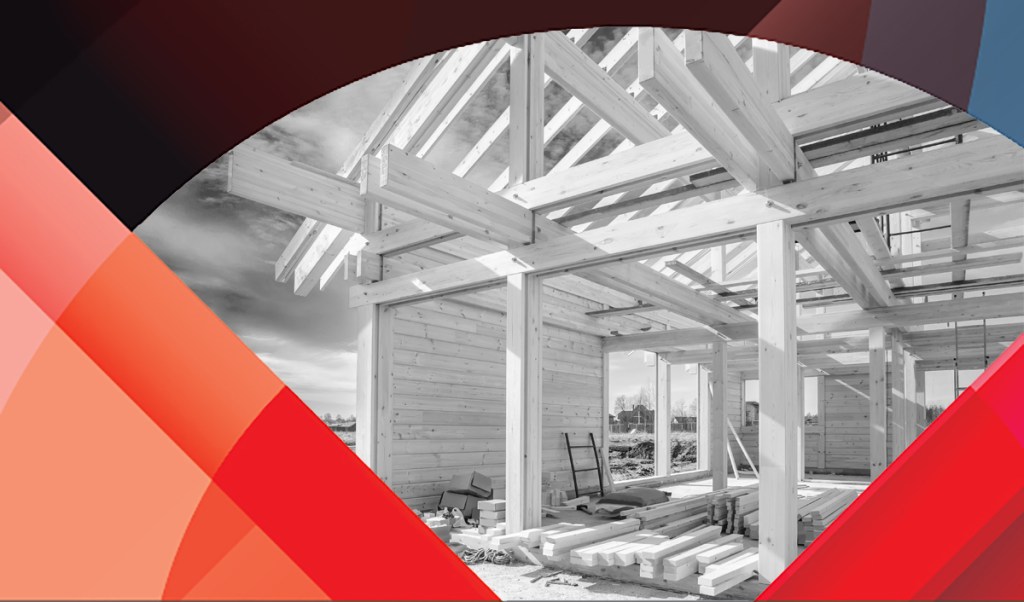
After a tumultuous year for lumber prices and the homebuilding industry, a light has finally emerged at the end of the tunnel. But builders aren’t out of the woods quite yet.
Lumber prices, a source of builder and construction company angst for approximately 15 months, are officially falling, as the price that sawmills charge distributors for cut lumber is down for the eighth consecutive week.
Digging into the numbers, the cash market price for lumber fell to $485 per thousand board feet for the week ending July 23 — a $90 fall in one week, and down nearly 70% from an all-time high of $1,670.50 in May. Futures ended at $521.40 per thousand board feet by Wednesday of this week, and currently sit around $600 per thousand board feet.
In June alone, lumber futures fell more than 40%, according to the National Association of Homebuilders.
And prices could be even lower if not for wildfires in British Columbia and the subsequent closing of sawmills at Canfor, North America’s second-largest lumber producer.
It’s quite a difference from the spring and summer of 2020, when lumber prices were high enough to add almost $30,000 to the price of an average new single-family home, per the NAHB. For a new multifamily home, the market value increased $10,000 and households paid $92 a month more in rent, on average.
Why the recent drop in lumber prices, then? As multiple COVID-19 vaccines began circulating throughout the country, Americans began going on more vacations now than they were during the pandemic in 2020 — instead of taking on home renovation and building projects.
But even with the price drops, it could be a while before builders benefit.
Construction companies still dealing with high prices
The price of lumber packages quoted to builders are still high due to the dealers’ inventory carrying costs, according to David Logan, NAHB senior economist and director of tax and trade policy analysis. And mill lumber prices, specifically, must “substantially” decrease for an extended period of time, Logan said, for builders to see price relief.
“There’s still a potentially large difference between the price at which inventory is bought and sold,” Logan said. “At the very least, [wholesalers] try to avoid buying high and selling low, which happens to be the biggest risk in an environment of rapidly falling prices.”
Logan added that retailers — lumberyards, usually — have less buying power than wholesalers have selling power. As a result, inventory costs tend to increase in step with the market prices, and the higher costs are then passed on to builders in order to maintain positive margins.
This applies to every material supply chain, Logan said.
“Although the cash price of framing lumber has fallen dramatically in recent weeks, the same can’t be said of other major parts of home construction,” he said. “The average price of oriented strand board remains 500% greater, for example, versus April of 2020.”
Steel mill products increased 70% in the first few months of 2021 as well, Logan said.
Inventory has, of course, been just as pressing of an issue for the housing market as lumber prices have been. With a finite number of existing homes on the market, many would-be homeowners turned to paying extravagant prices for new builds – prices that were high in the first place due to skyrocketing lumber and building material prices.
Supply chains, appliance delivery still slow
As reported by HousingWire back in June, the cost and scarcity of new appliances for homes has placed an added thorn into the side of homebuilders and prospective buyers – the median price of refrigerators, washing machines, and ovens increased 10% by the end of 2020.
Those prices have stabilized as the calendar turns to June 2021, but delivery time is still a problem, Logan said.
With retailers still charging high prices for appliances, lumber, and other building materials, supply chains have slowed across the country as companies search for better value.
“Builders are contending with shortages of building materials, buildable lots and skilled labor as well as a challenging regulatory environment, and this is still putting upward pressure on home prices and sidelining many prospective home buyers — even as demand remains strong in a low-inventory environment,” said Robert Dietz, NAHB chief economist.
Like everything else connected to the price of lumber and building materials, supply speed should pick back up once costs decrease, officials said.
Will lumber stay affordable?
Buyers of new builds shouldn’t expect a discount anytime soon, lumber insiders and homebuilders told HousingWire.
For one, prices of lumber will certainly go back up once vacation season ends in August. And even with yet another price decline expected in the fall, when seasonal construction usually slows down, retailers are still expecting to pay high prices as lumberyards work to rebuild their margins.
A myriad of other factors are at play, too, that will drive lumber prices back up before the end of the year: the natural demand for houses making a comeback as mortgage rates remain low; the aforementioned wildfires in British Columbia, not to mention the regular risk of wildfires in the western half of the United States; and the onset of hurricane season, which always puts pressure on supply chains as well as causing demand for lumber as residents in the southeastern United States look to board up their windows.
So while prices are lower than they have been in months, don’t expect builders and buyers to see much of an impact, Logan said.
“Wholesalers cannot predict when a bull market is going to end and buy their lumber according to how likely they believe it will last,” Logan said.





